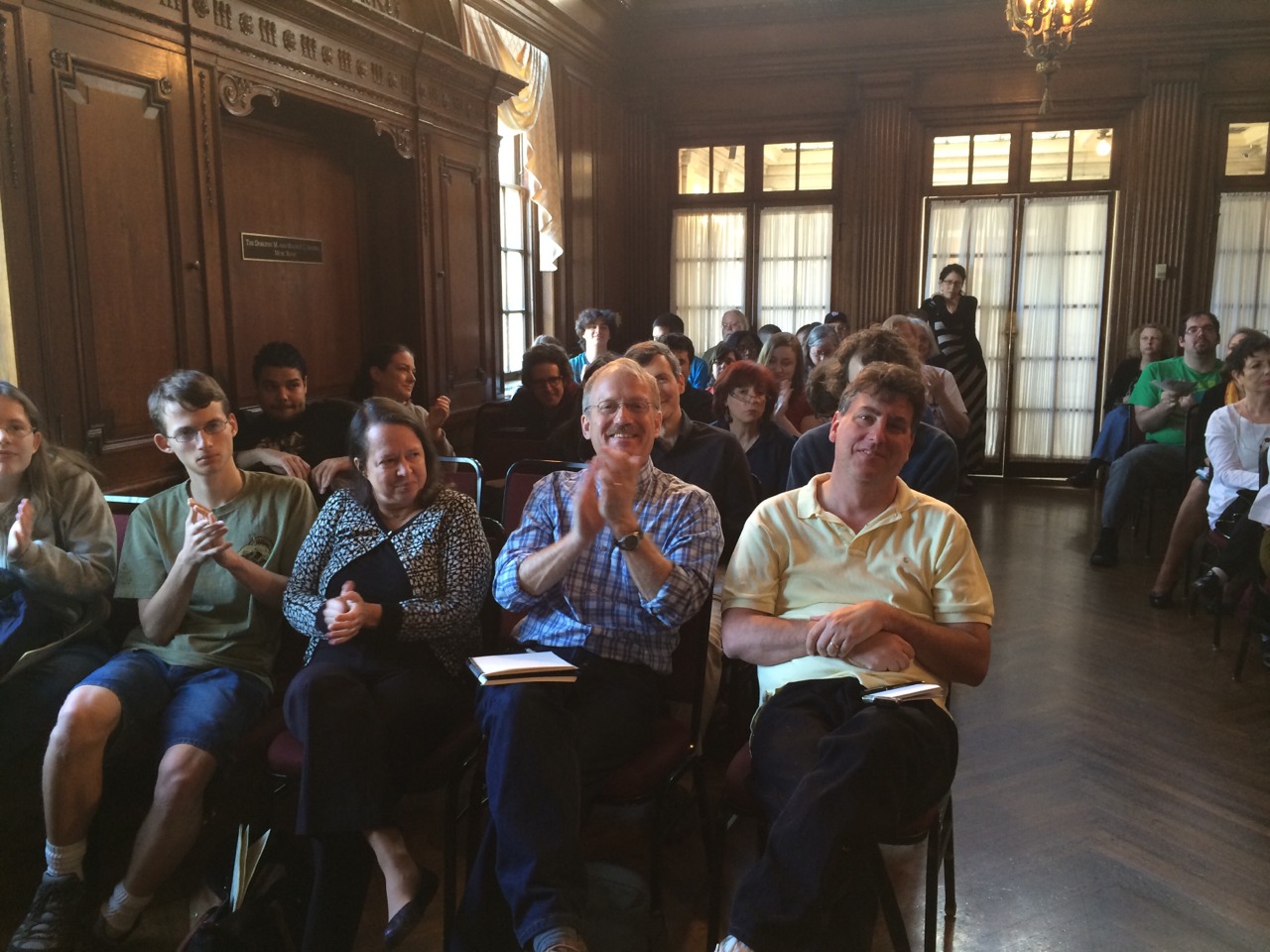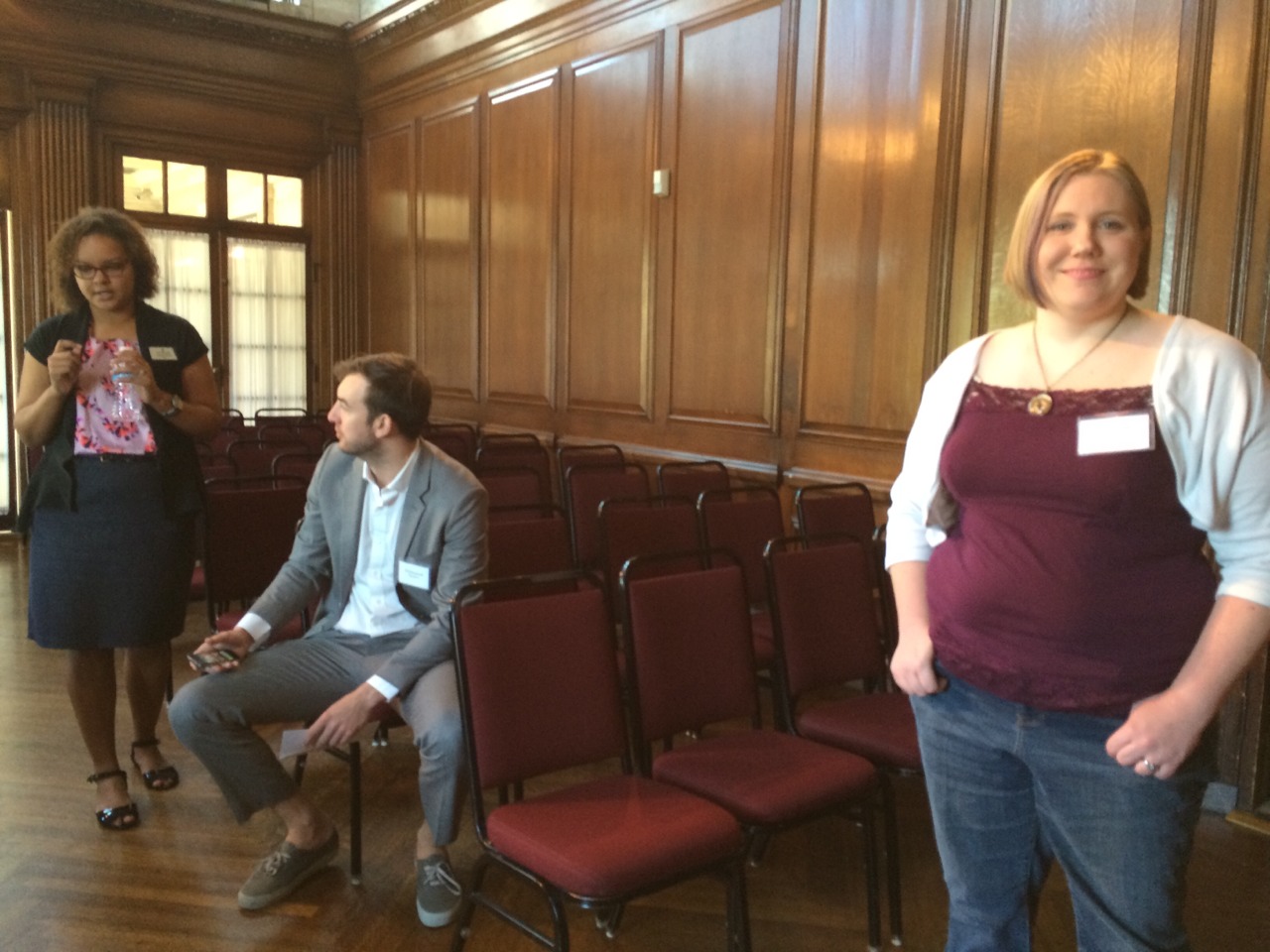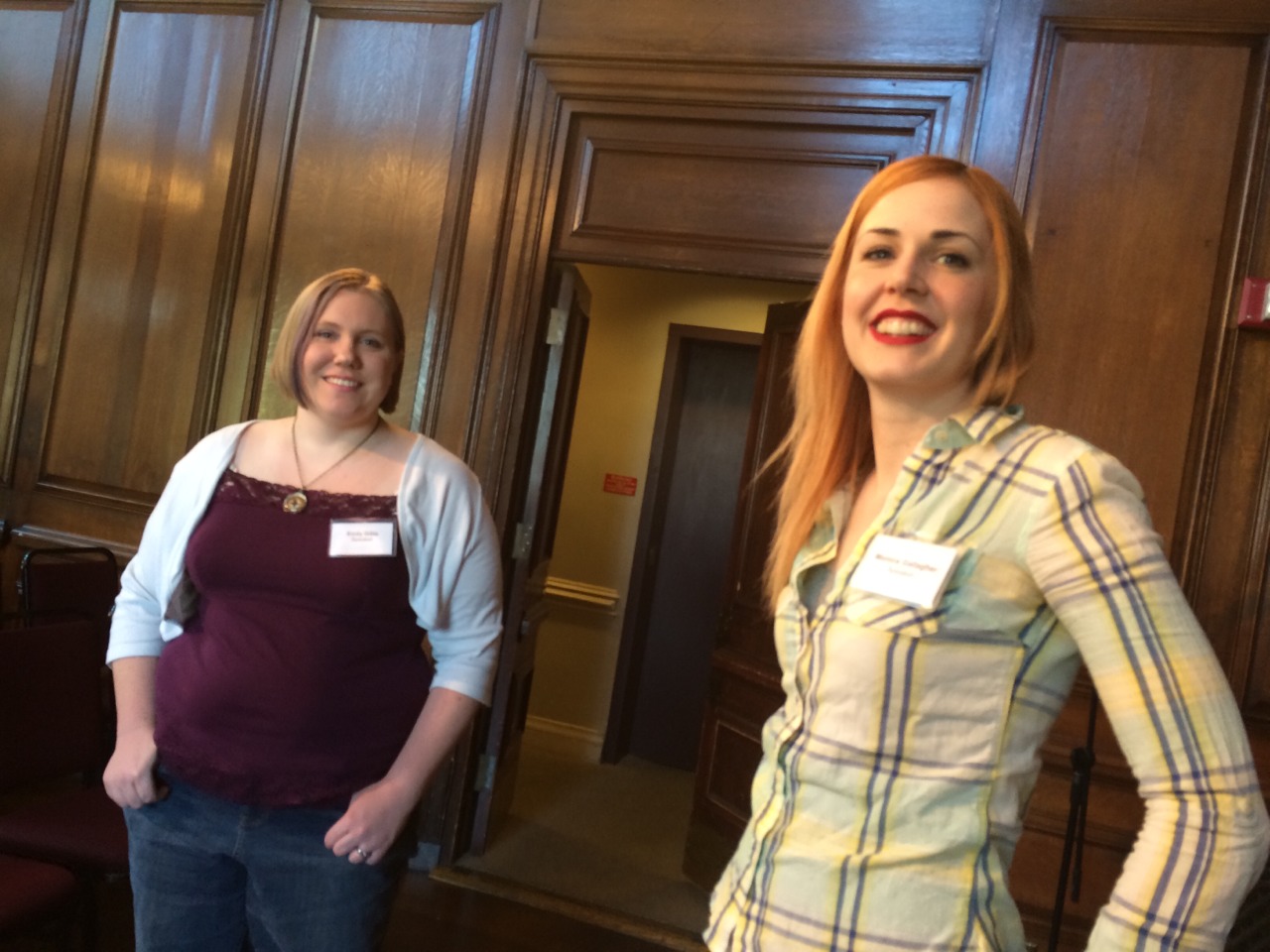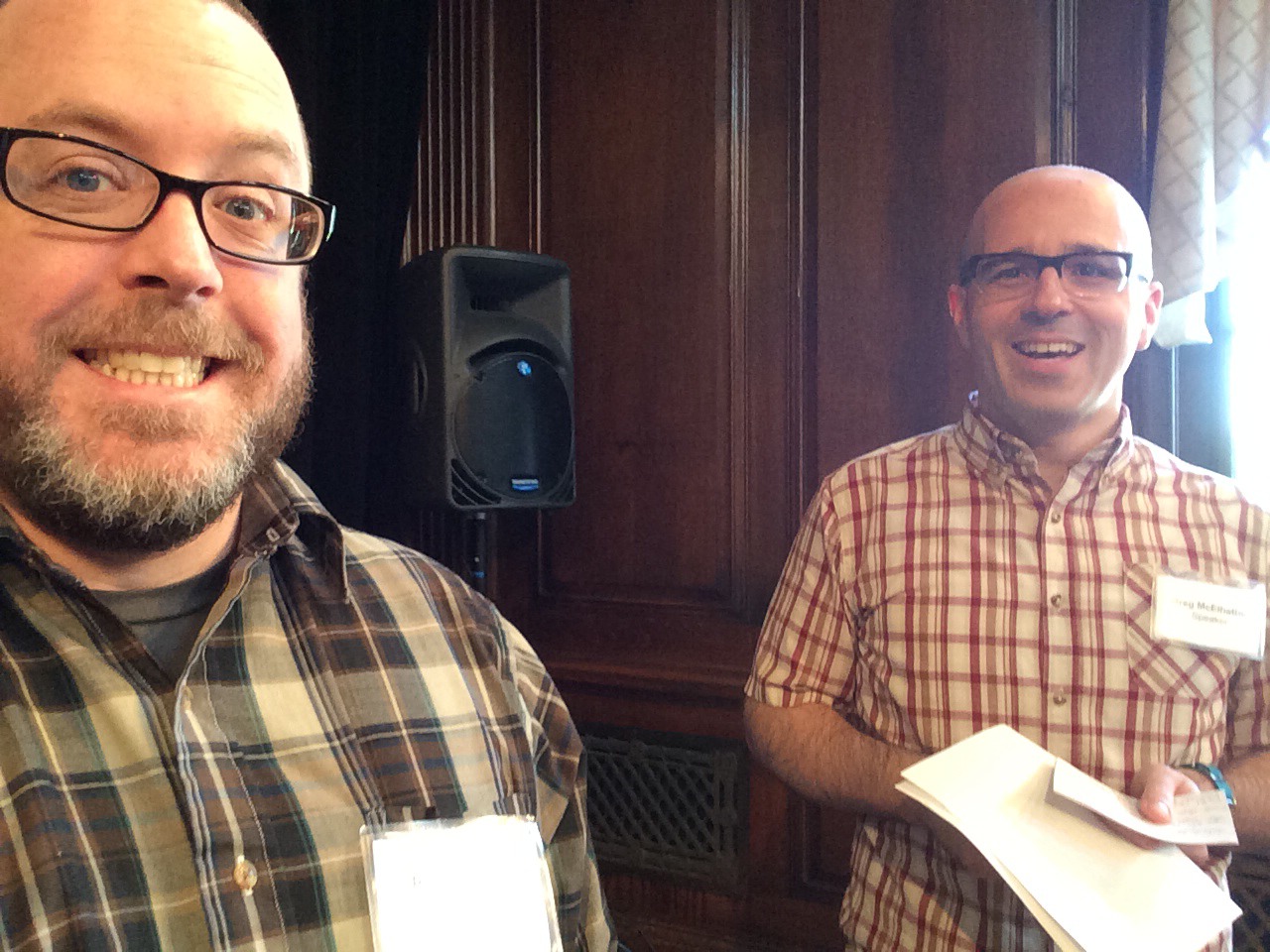Panels of Fun
/Note: all of those pictures were taken from Rafer's tumblr - check him out!

Yesterday I was honored to be part of a panel on "Beyond Text and Line: A Discussion on the Art of Comic Books” at the incredibly beautiful Strathmore Institute, which is currently running a really cool art exhibit on Comic Books and Comic Book Art (it's running until June - check it out!). Together Emily Gillis, JD Deardourff, Rafer Roberts, moderator Greg McElhatton, and I all perched ourselves on stools in one of the Strathmore Mansion's gorgeous old rooms to chat about working in comics.

Panels are something I've only had limited experience with so far, but I'm thrilled anytime I get to be on them (even though for a while it's touch-and-go with the butterflies and the heebie-jeebies and the "where will my sweat stains appear THIS time?")

One of the interesting topics brought up in the discussion of comic strips vs. comic BOOKS vs. the illustrious graphic novel was whether trends in audience preference or in technology have driven the evolution of comics. I've always thought that as television shows and movies have gotten more sequential and placed more importance on the narrative (story arcs and movie sequels vs. monster/moral of the week sitcoms), a lot of comics have followed suit. While there still are one-shot comics with gags or single strip stories, it seems people like a good, continuing story arc. But as one of the panelists pointed out, that could be because technology has allowed us to view things as tv shows and comics as worth preserving rather than as disposable, therefore logically story topics have followed suit.

We got a couple questions on what "gateway comic" we'd use to get folks interested in comics, which spurred some Contract With God, Sandman, Y The Last Man, The Dark Knight Returns shout-outs. When I recommend comics, though, I tend to go by the genre that the person is interested in - for one friend who's into strong, female characters - I recommended Strangers In Paradise and Queen & Country. For another into a lot of film noir, I recommended You Have Killed Me. I think the more we treat comics as having many different genres contained within them, rather than comics as a whole as ONE genre, the more we hope to get comics more into the mainstream reading public.

See, this is why I love being on panels so much, and in non-convention environments in particular. It's the chance to combine fellow comic industry buds with people who think comics are a weird, mystical land of nerds - all of us coming together and figuring comics out. :)
